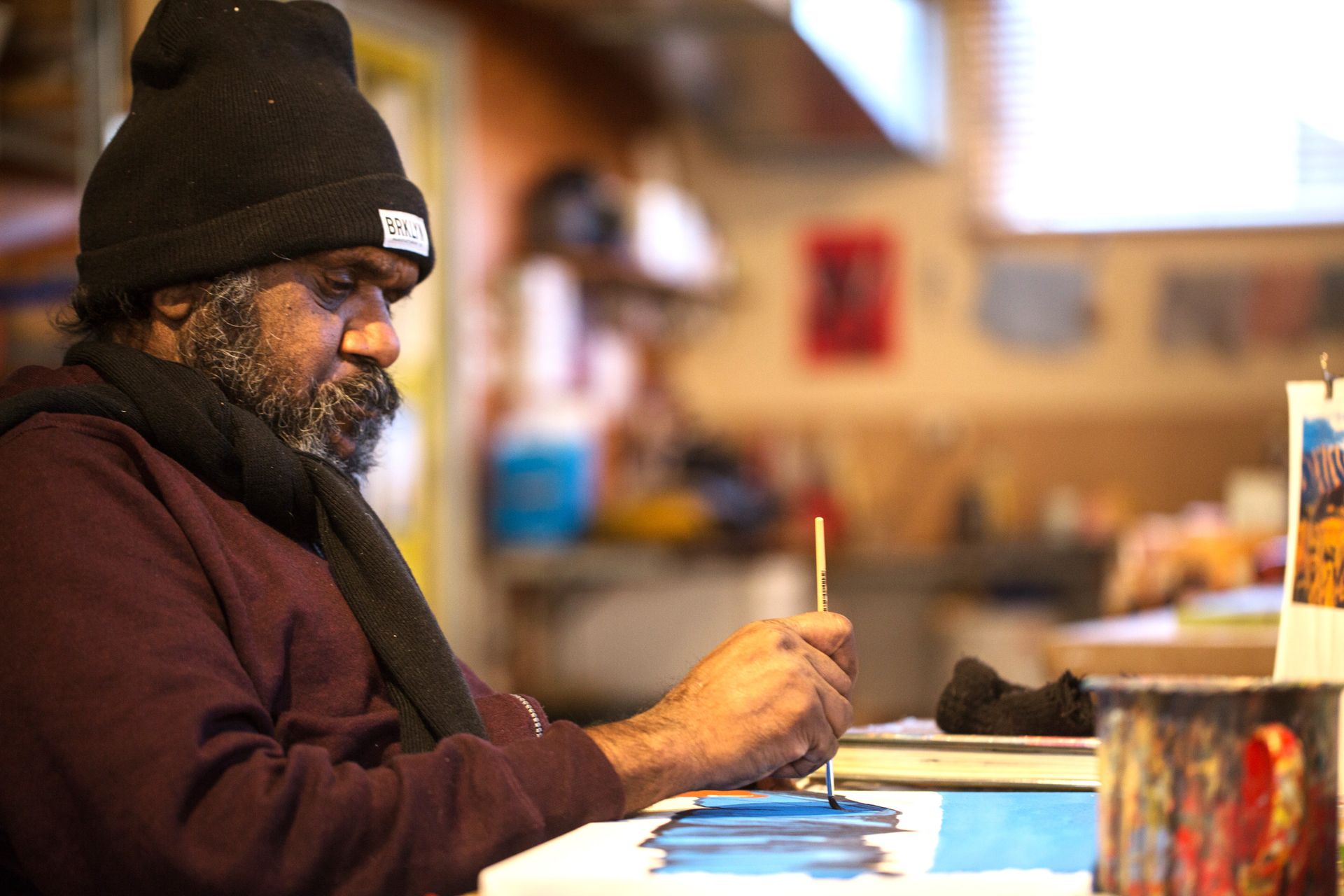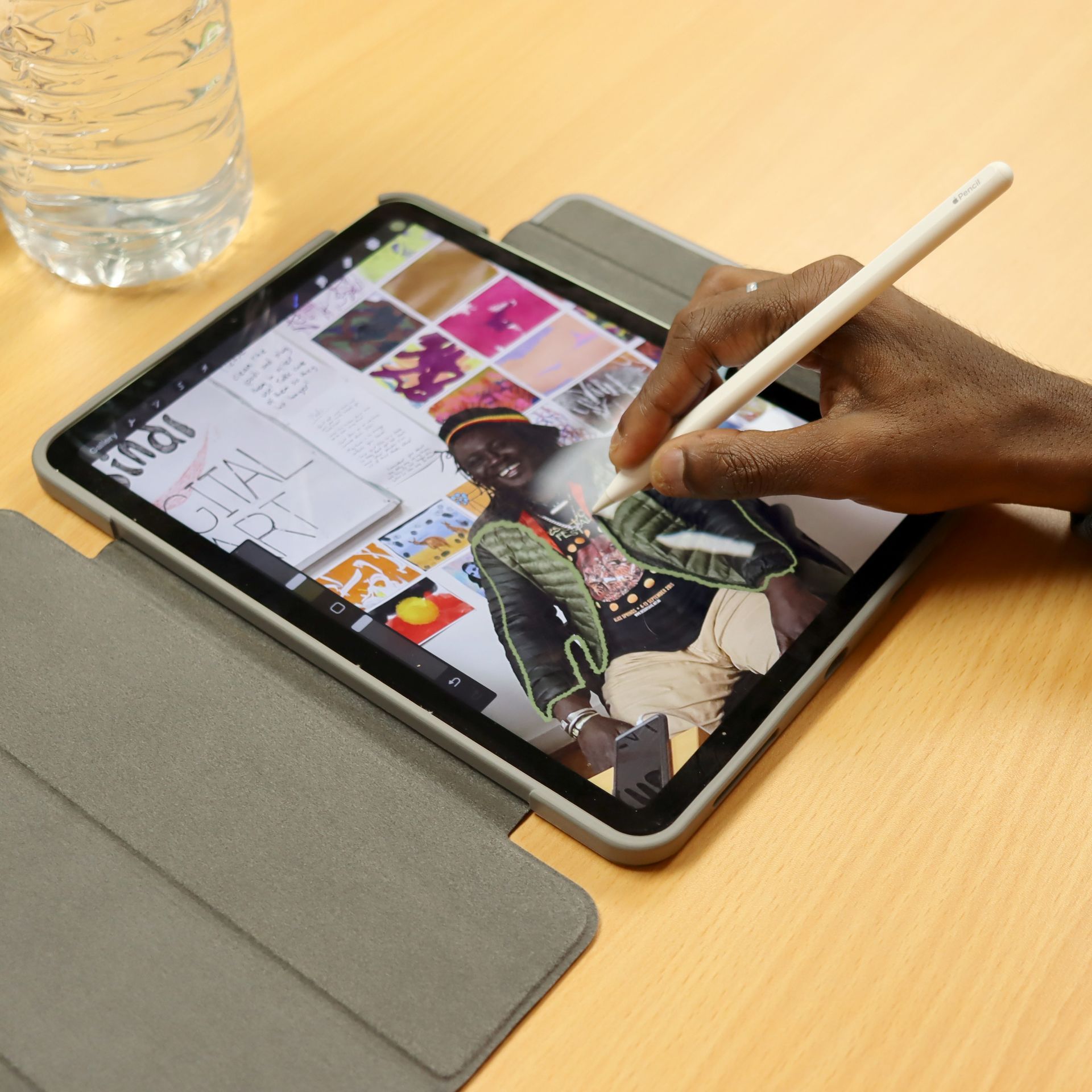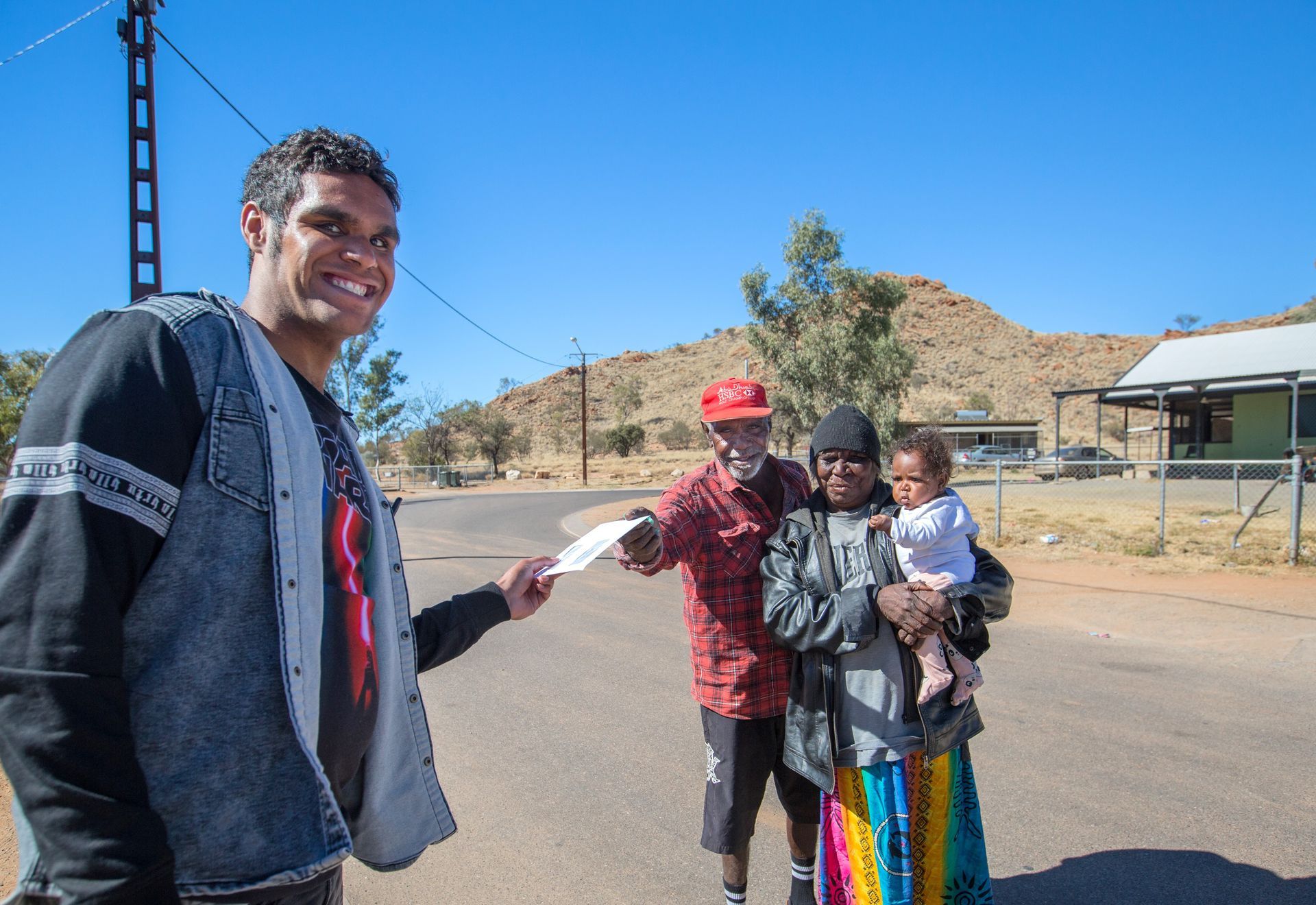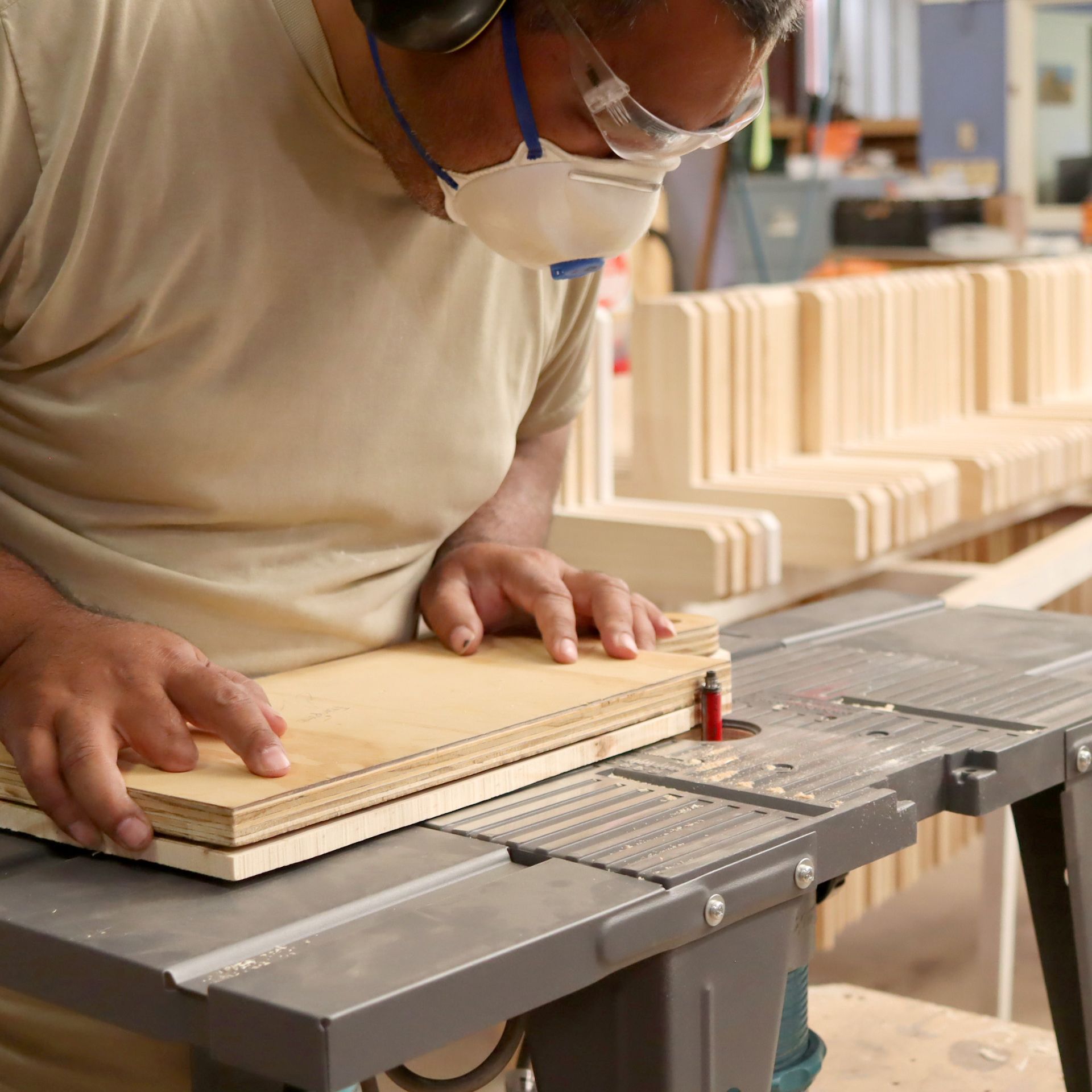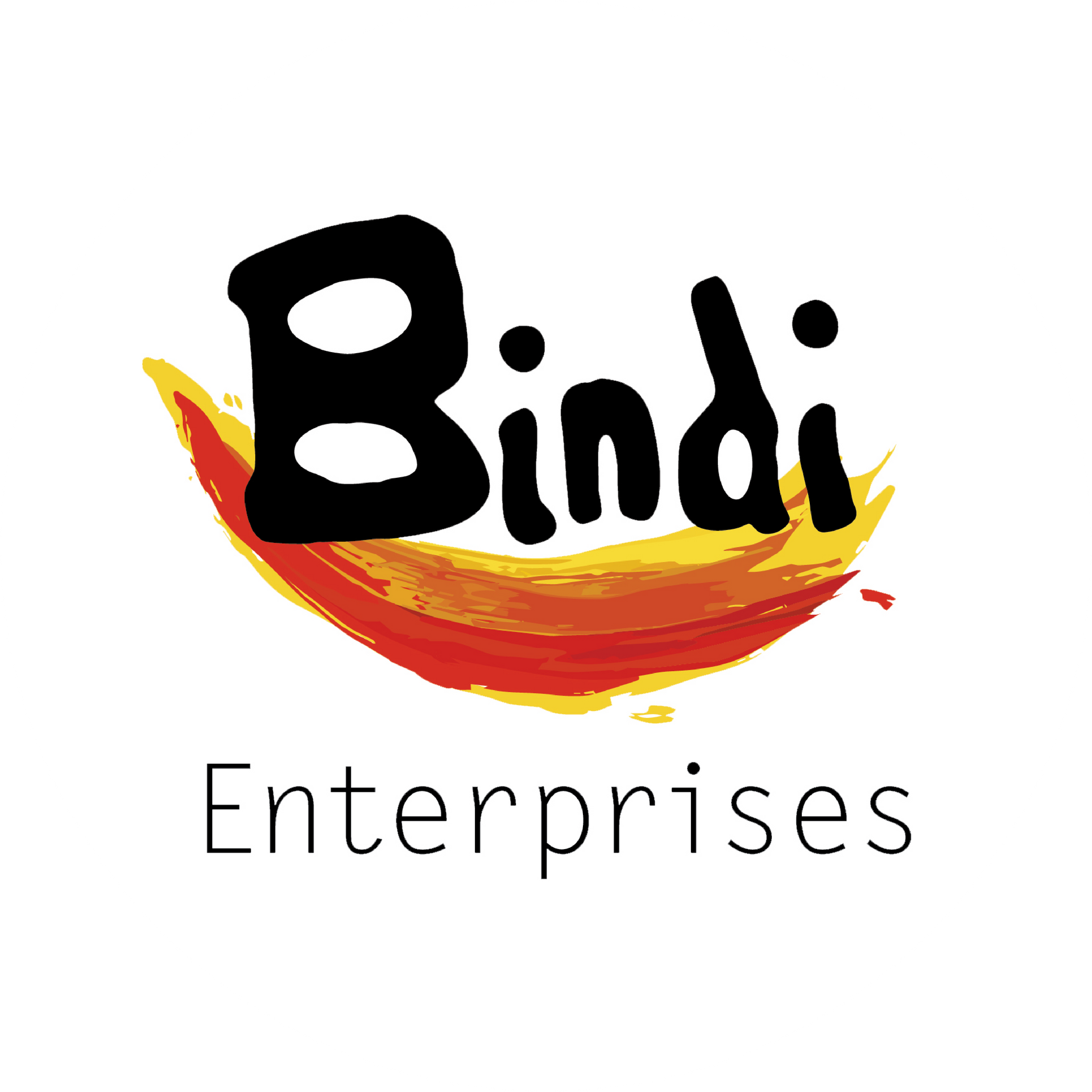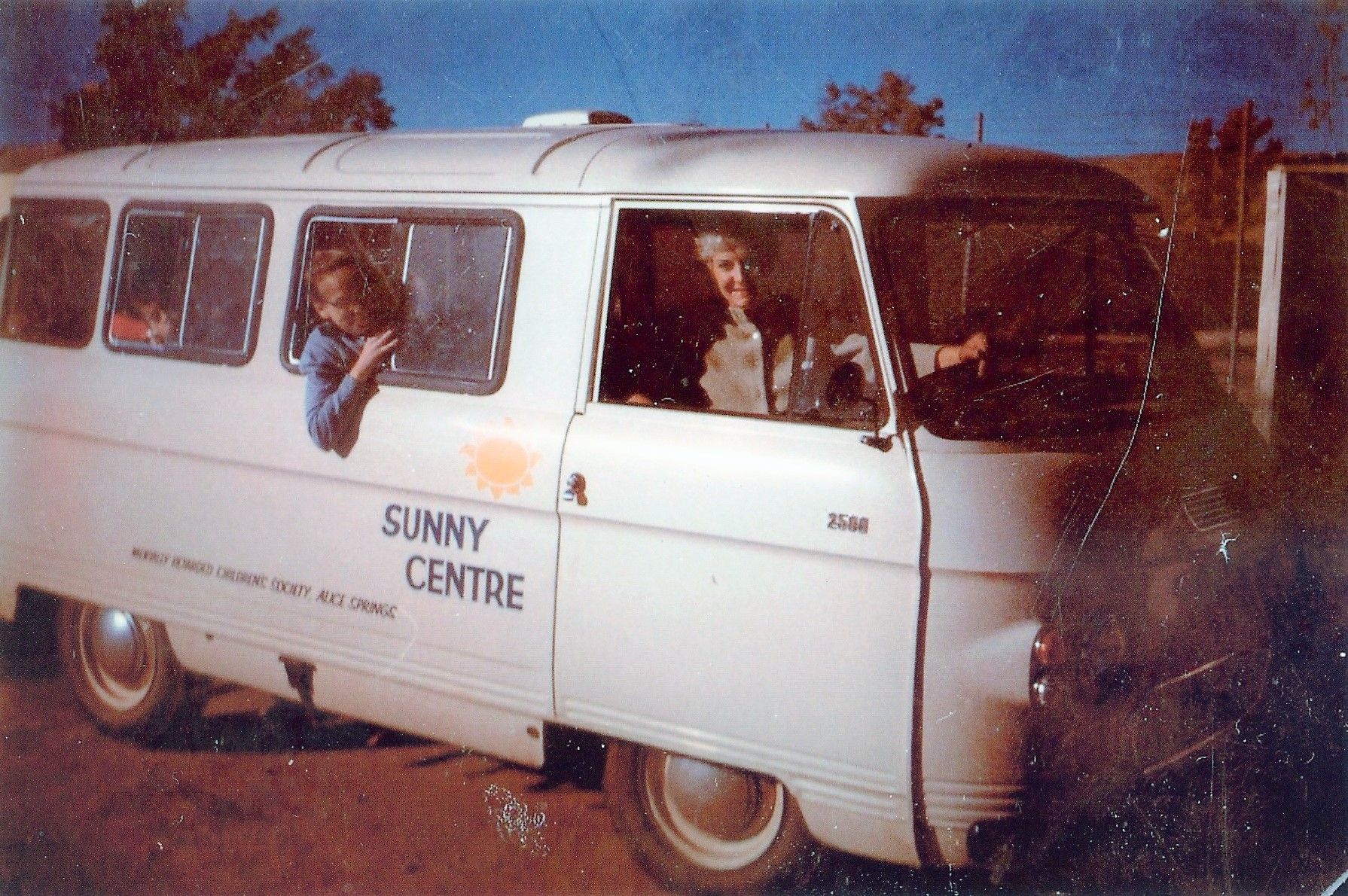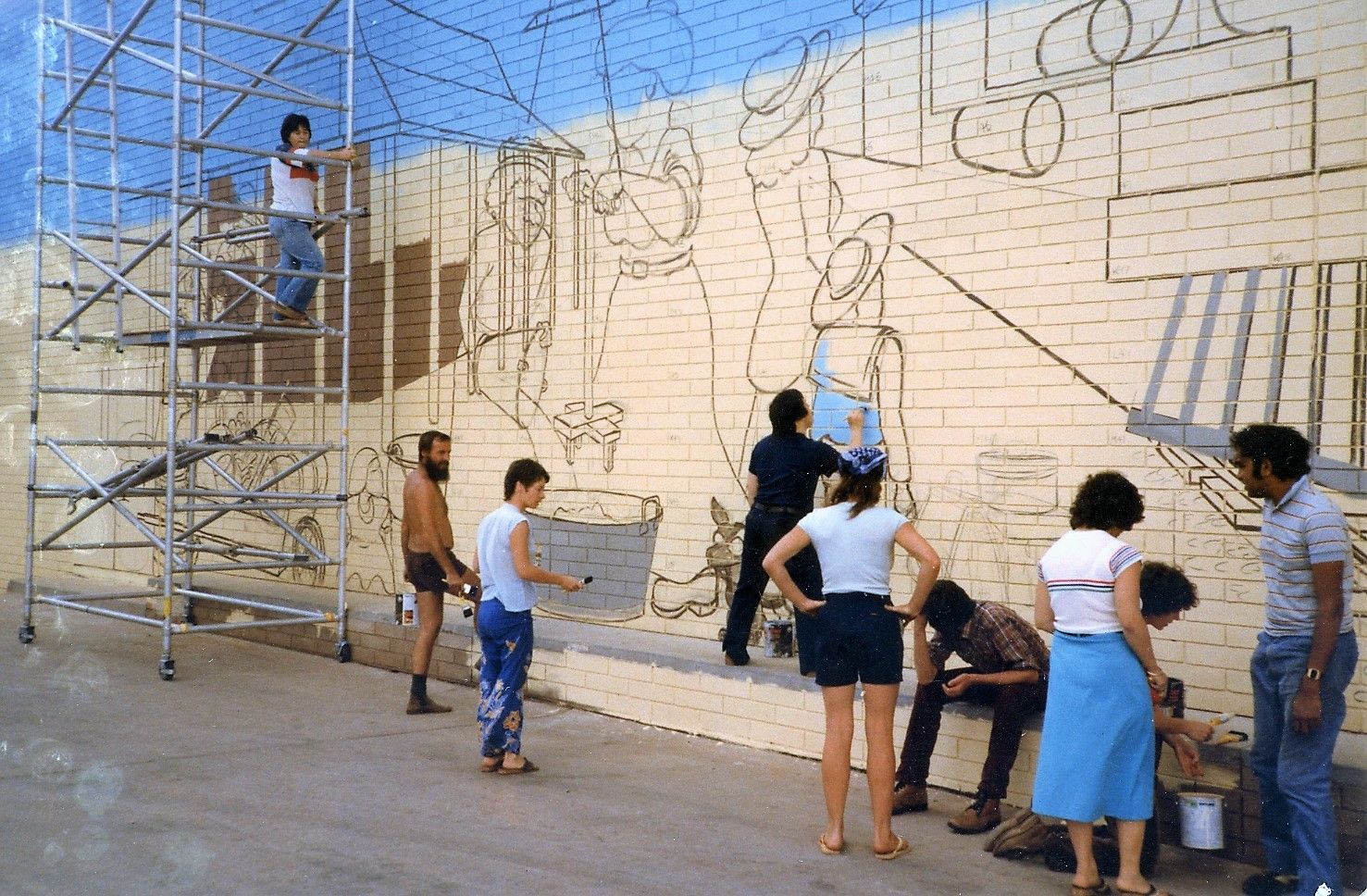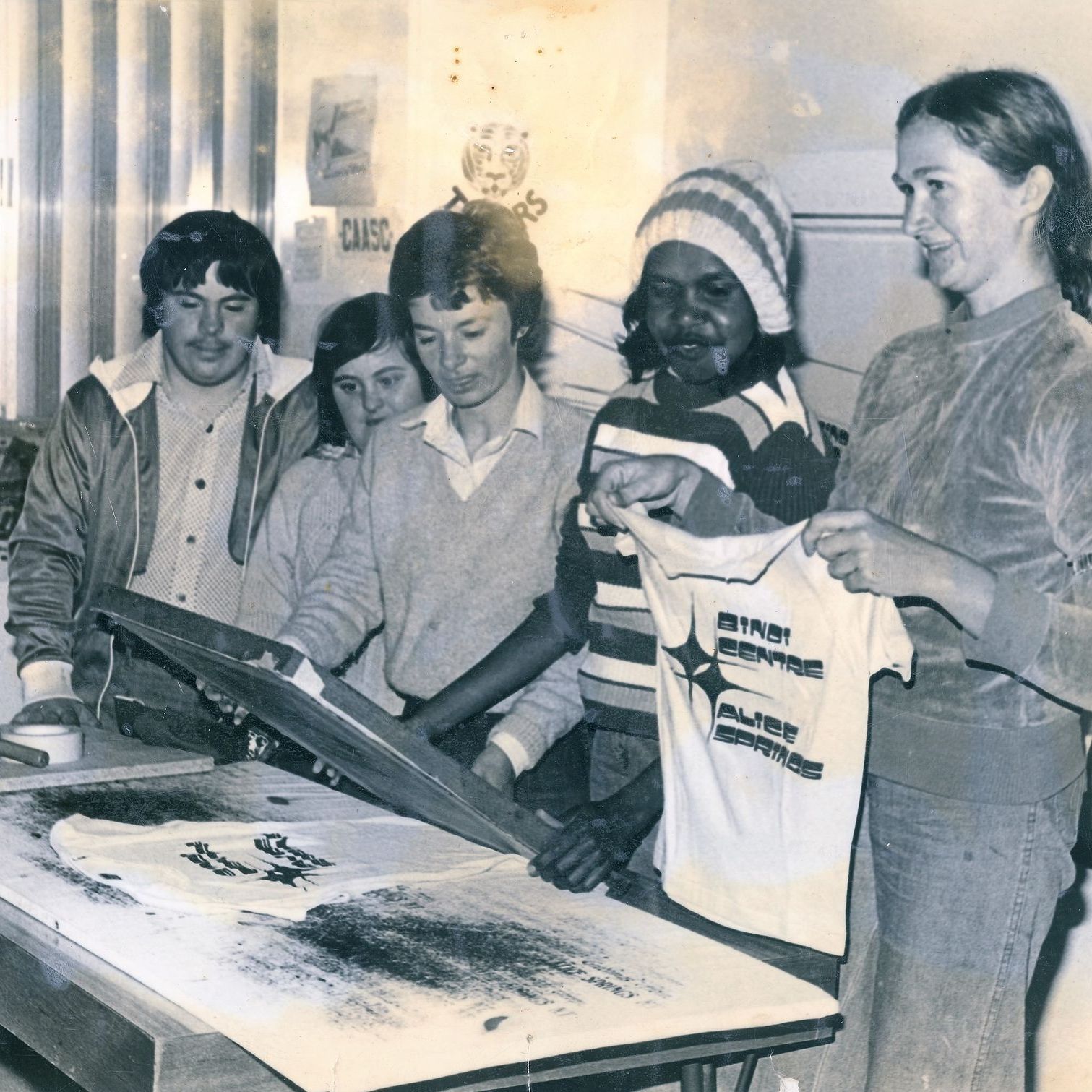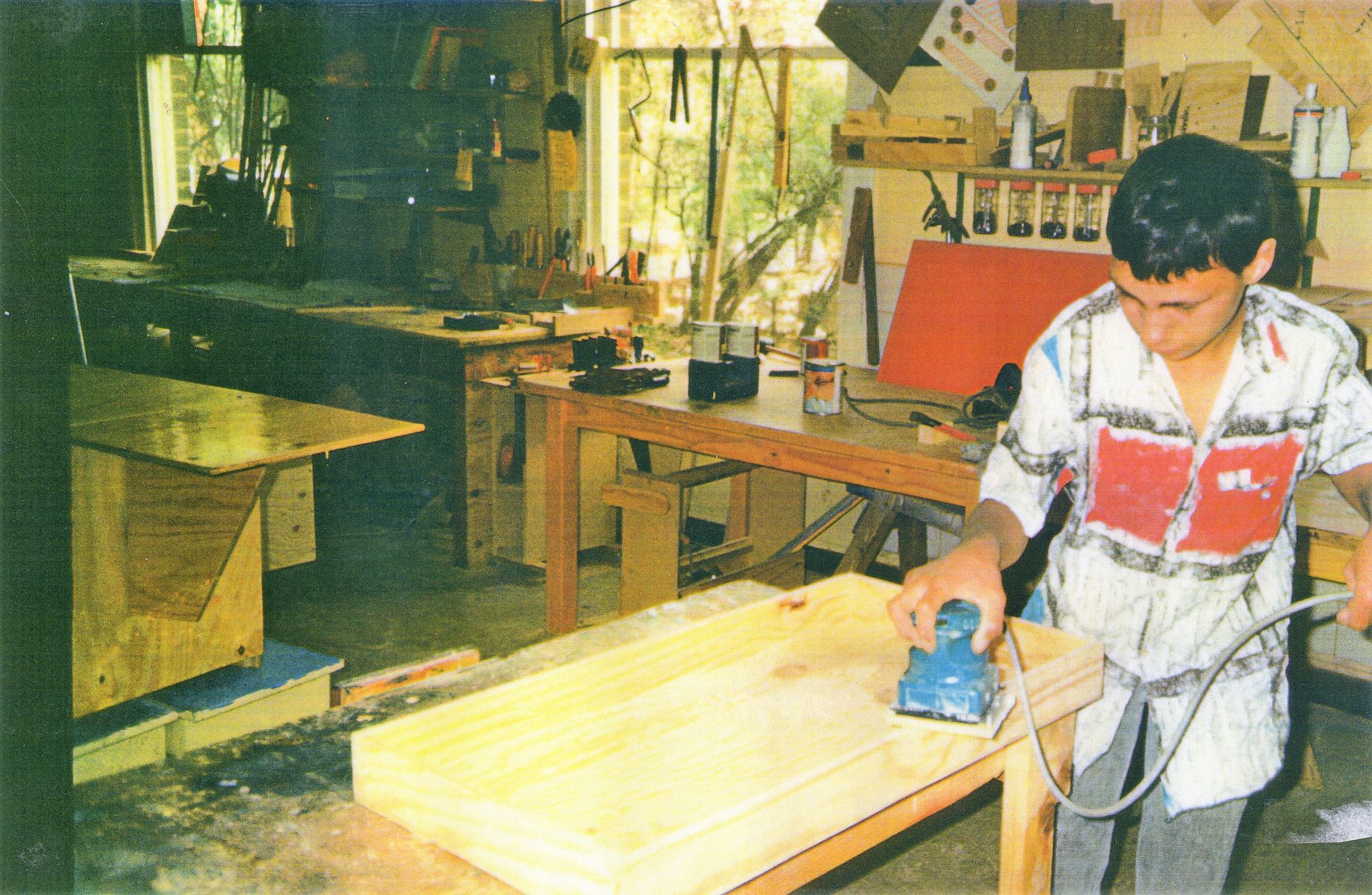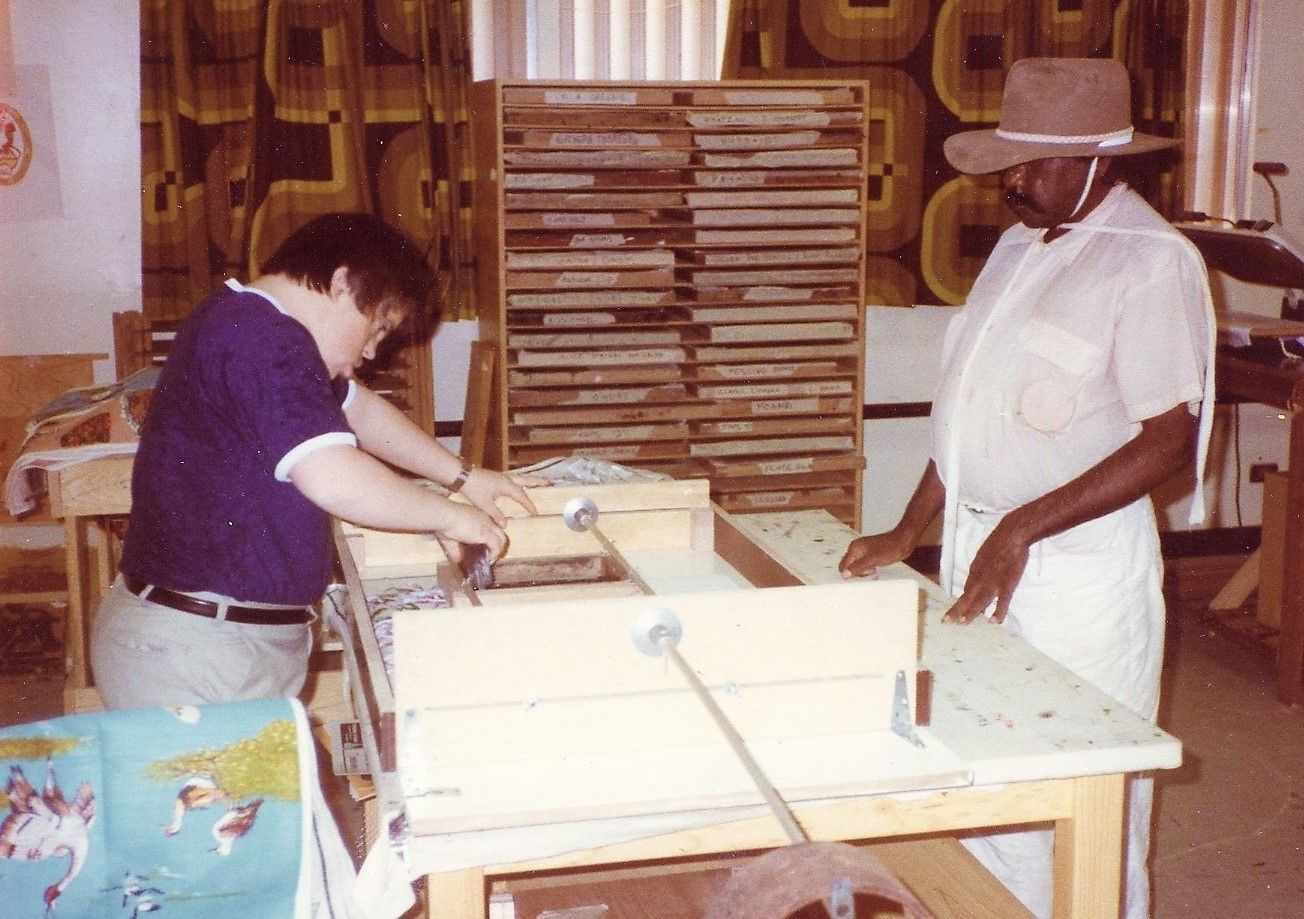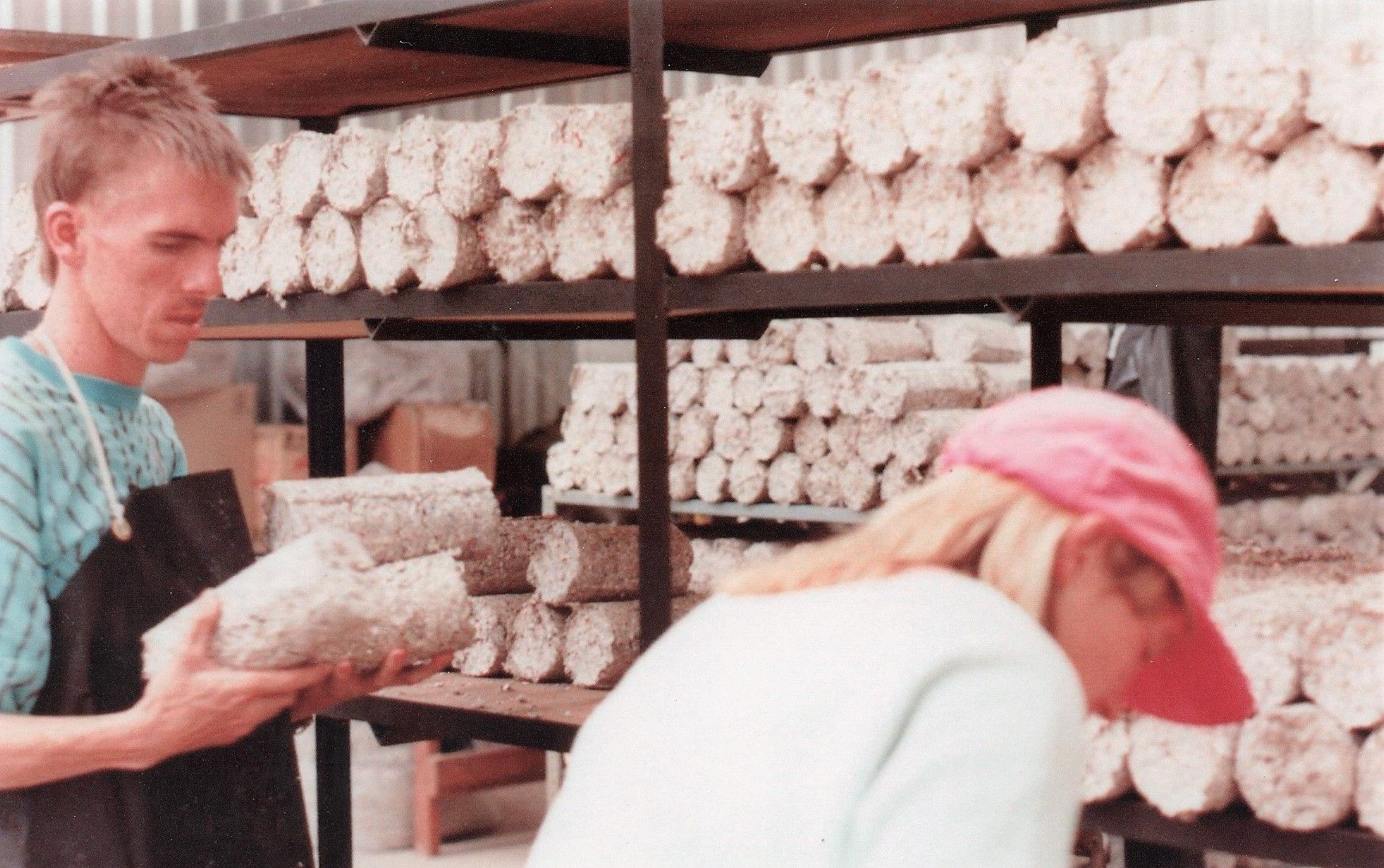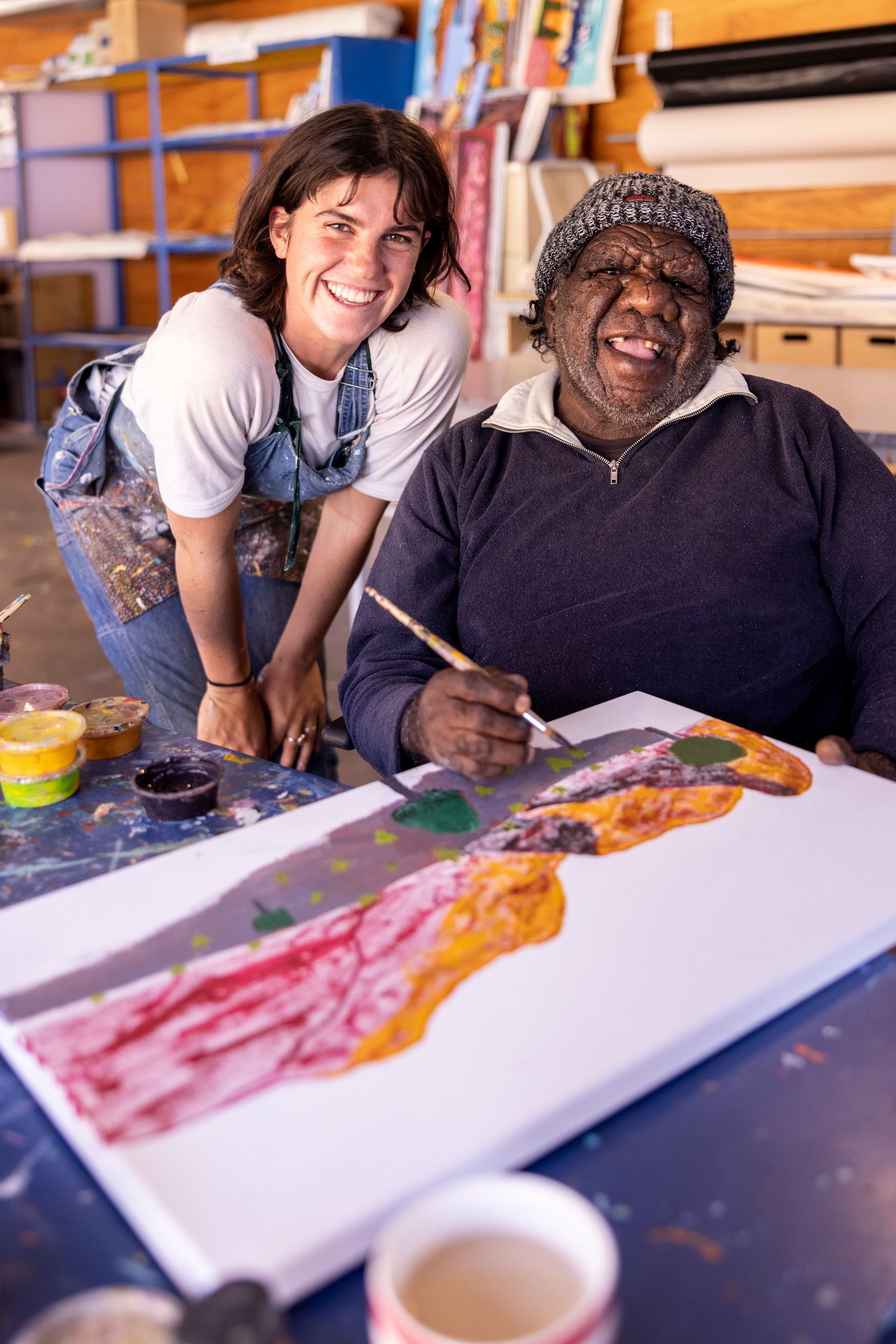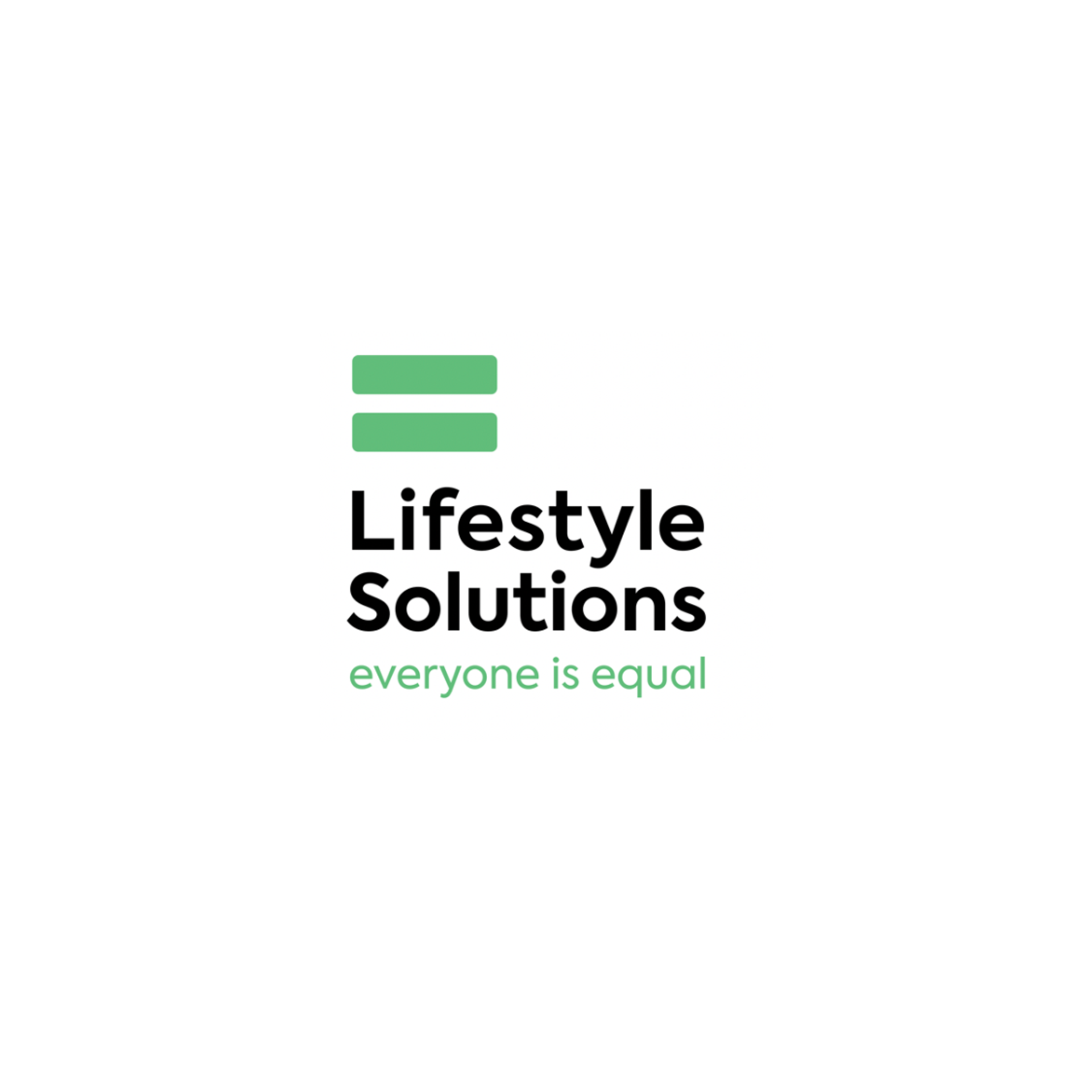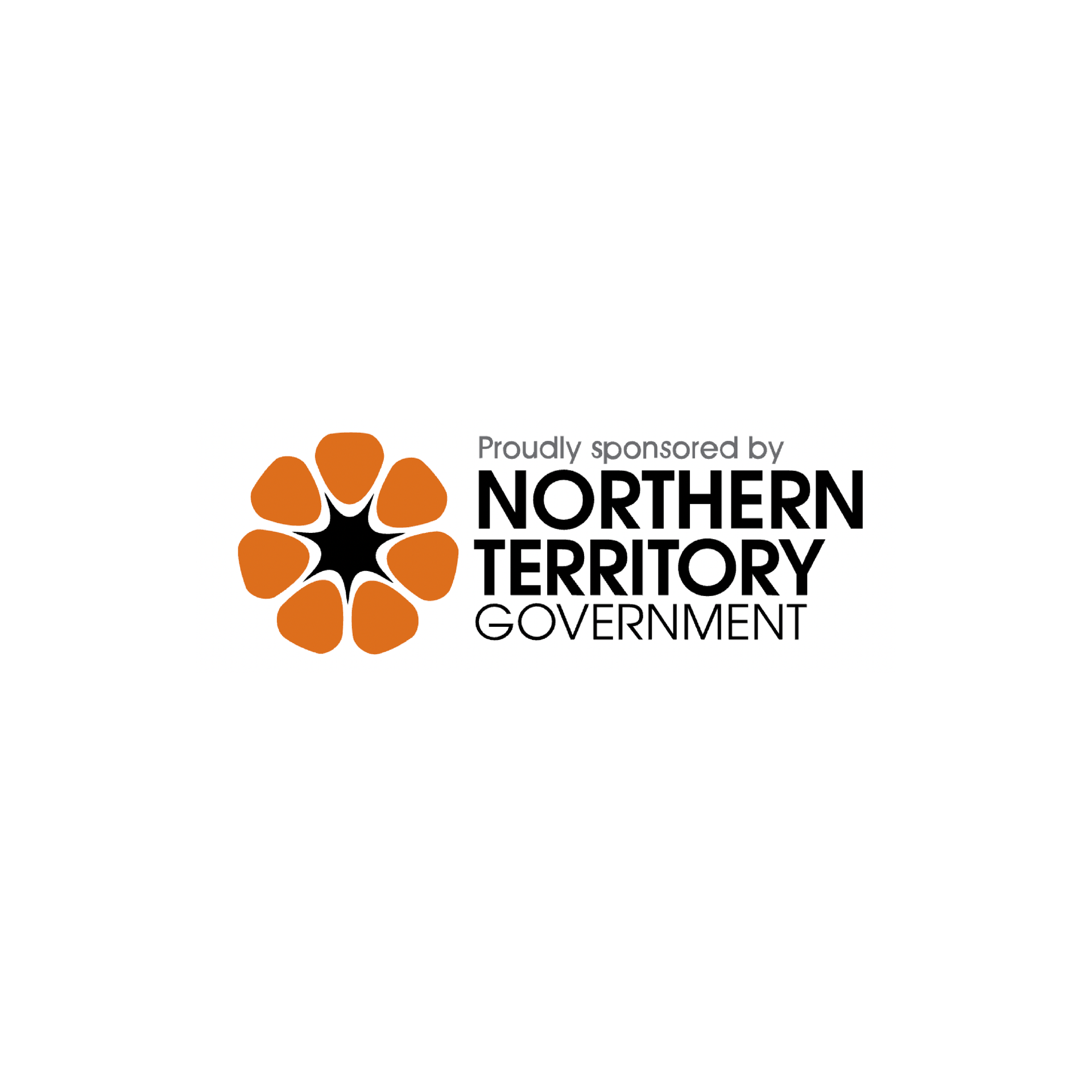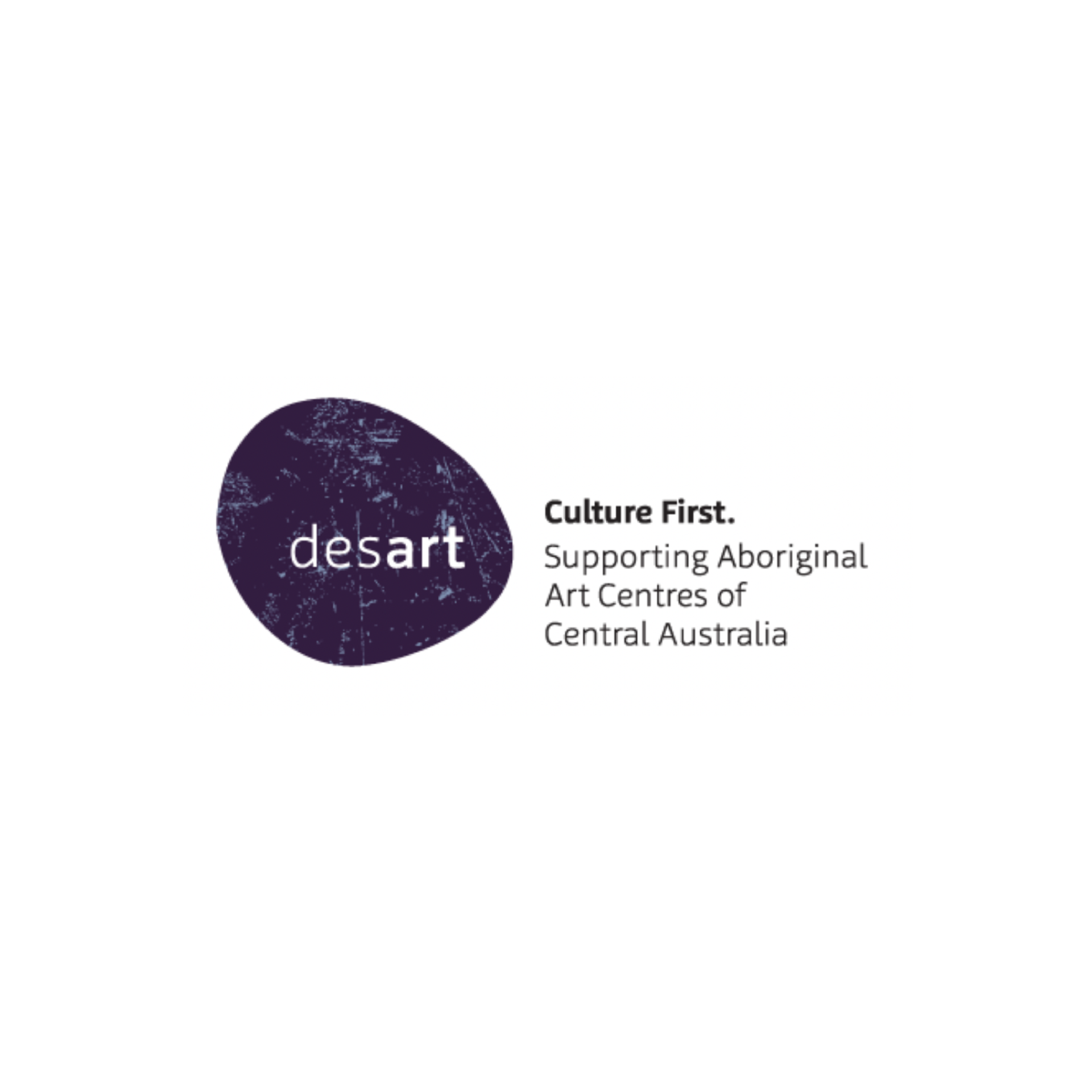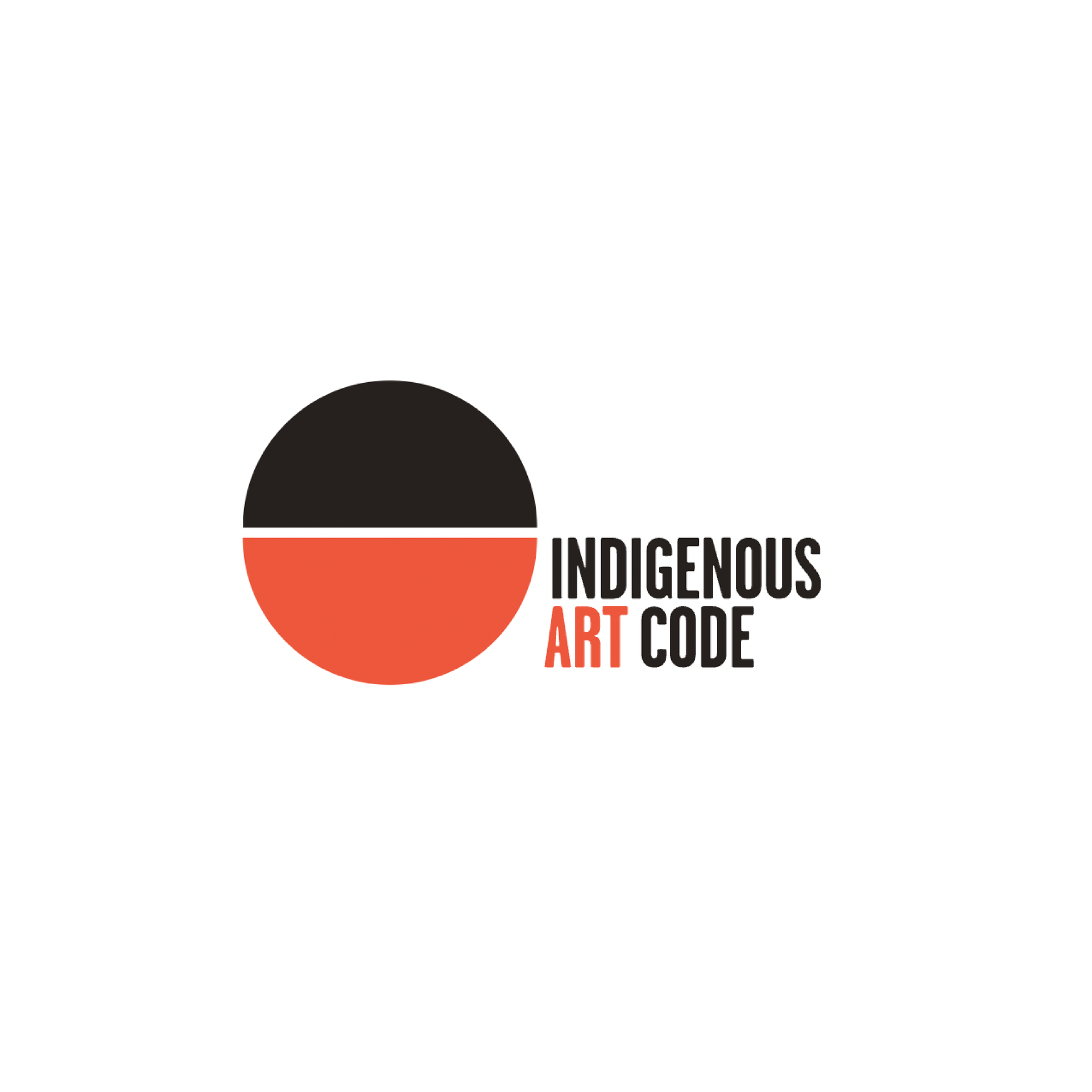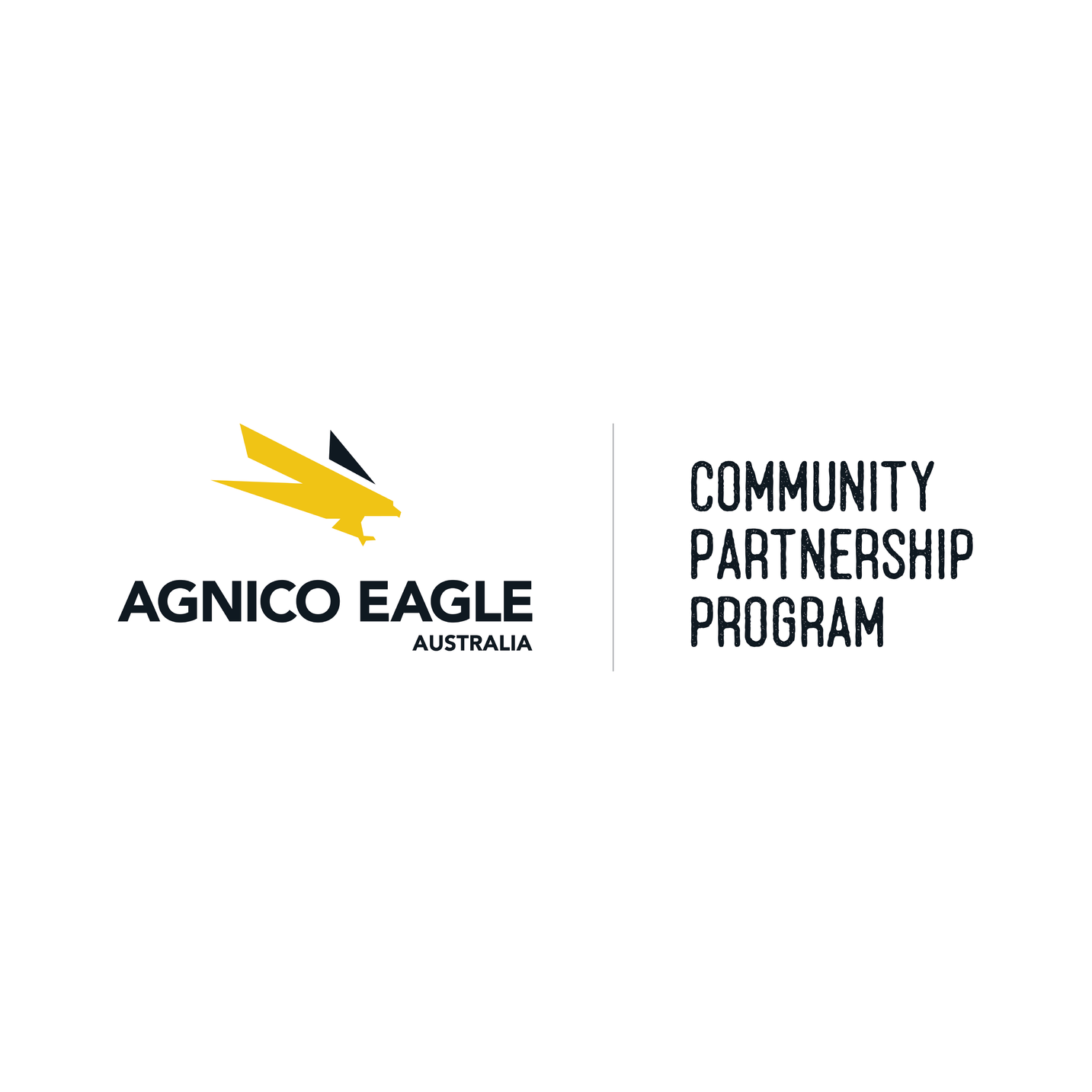Bindi's History
Bindi believes that everyone is capable of learning and developing given the appropriate training, opportunities, and environments. It is our vision that every adult with a disability, no matter what their present ability, who has the desire to work or participate in lifestyle options, will be supported to achieve their goals.
Read More
The story of Bindi’s conception is one of pioneering and determination, community, and care.
At the time of its establishment in 1978 it was still common practice for people living with disability to spend their lives in institutions.
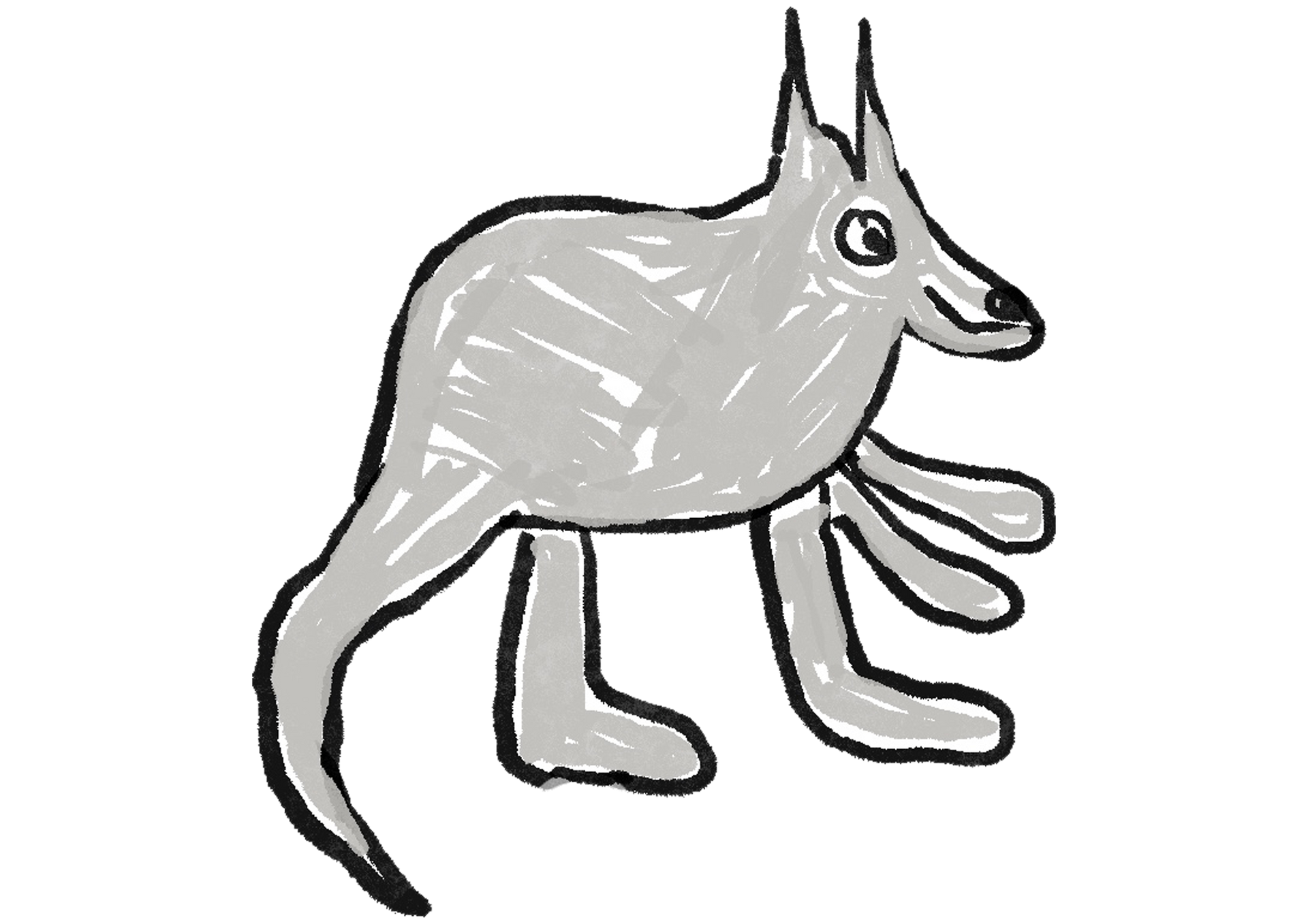
Twelve years earlier Telka Williams had founded The Sunny Centre, Alice Springs’ first school catering specifically for young people with disability. Motivated by the need to provide education and community access to her daughter and other young people living with disability in Alice Springs, Telka saw the first generation of graduates were emerging with no real employment options available to them. Bindi was founded by Telka with the invaluable help of some volunteers and community goodwill on the principle that people living with a disability should have the right to access meaningful employment.
The First Contracts
For the first few years, Bindi operated out of a demountable hospital ward on the hospital campus in Alice Springs. Early contracts included laundry services and screen printing, t-shirts, and tea towels. These contracts were supplemented by government grants and donations from local businesses, as well as various fundraising events to keep Bindi going and growing; catwalk parades, thong-a-thons, concerts, balls etc. Bindi’s employees were proud to organise these events and create autonomous income streams.
The Workshop
Bindi’s workshop was established in the wake of Bindi leaving behind these fundraising ventures in favour of more conventional modes of securing income. The workshop developed innovative products that catered to the needs of remote living, such as wooden boxes that would encase portable fridges being transported “out bush” along bumpy, unsealed roads. In another example of innovation, supported employees were able to circumvent obstacles in accessing various tools by designing and producing aids that enabled employees of all abilities to use these tools. In this way the employees were in charge of their own access. The Bindi workshop became famous for its wooden tucker boxes, which are still in production today. Other previous services included motorbike and lawnmower repairs, the haberdashery, and a horticulture program.
The Artists' Studio
Having become specialists in creating quality locally made goods, the prevalence of cheap, mass produced and imported products drove Bindi to redirect its energy into service-based business contracts and the Art Centre - Bindi Mwerre Anthurre Artists. The Mwerre Anthurre artist collective was founded in 2000 when the remarkable artistic talents of the late Billy Benn Perrurle emerged when he started his career painting on off-cuts of timber and sheets of metal from the Bindi workshop. From these humble beginnings the collective grew into an essential and distinctive Aboriginal Art Centre where today several artists create work that is exhibited nationally and internationally.
The First Services
In 1980 Bindi established Alice Springs’ first group residential home for people with disability which went on to become CASA - Central Australian Supported Accommodation. Now an independent organisation CASA continues to provide supported accommodation in Alice Springs. Bindi was also responsible for setting up the first day program in Alice Springs in the year 2001. The mantra was community access, skill development, enjoyment and it was angled towards people with multiple and complex disabilities who had not been able to access the employment service. The service offered enriching programs including Horticulture, Bush Tucker, Multi-media, Art and Cultural connections, which transported local Aboriginal participants to their home lands to reconnect to country.
Lifestyle Solutions Possability
In 2012, Bindi Enterprises merged with Lifestyle Solutions, a national provider of services to people with disabilities, as well as young people and children in Out of Home Care. This partnership allowed Bindi to continue operating as an Australian Disability Enterprise (ADE) and achieve greater financial stability. The mission and values of Lifestyle Solutions closely aligned with Bindi’s own, creating a strong foundation for the merger. Since its inception, Bindi has been driven by the needs and direction of its participants and supported employees, ensuring that the service and business remained deeply connected to the people it serves.
As a result, Bindi has consistently been at the forefront of disability employment services — not only in Central Australia, where it operated as the sole disability service for its first 20 years, but also across the country. In late 2022, Possability and Lifestyle Solutions merged, bringing together two leading, independent disability and community service organisations with a combined 50 years of experience. This merger was driven by shared values and a vision of doing even more together - leveraging our combined expertise, resources, and people to better serve the communities we support.
